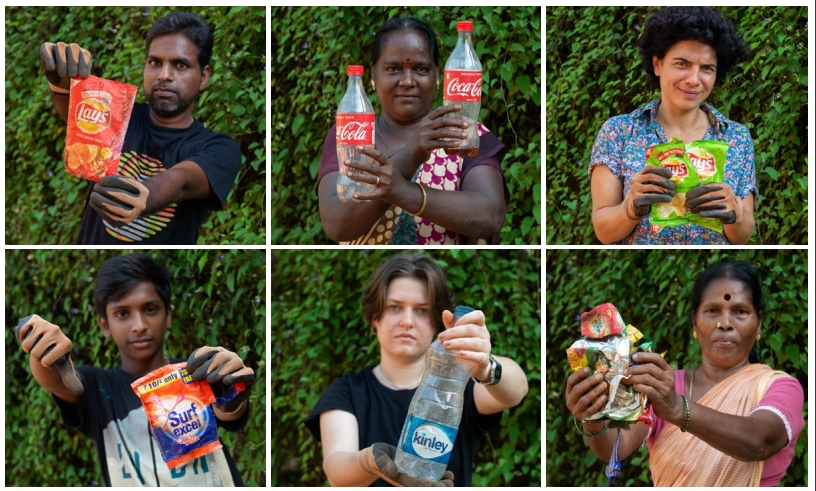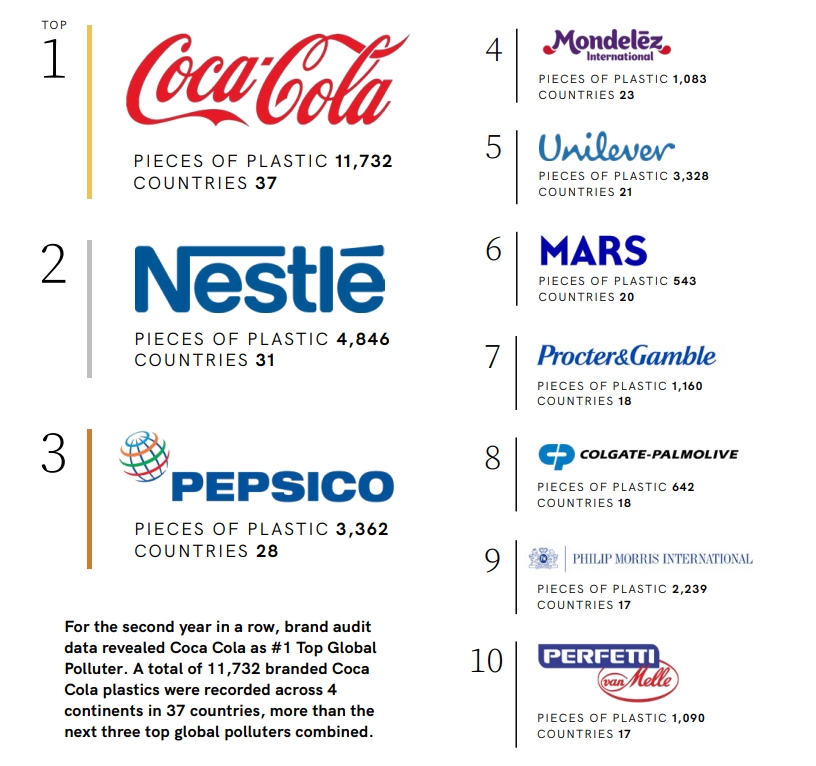
Break Free From Plastic, an environmental group trying to solve the global plastic waste problem, announced the name of a company that is a source of plastic waste pollution through the results of cleaning activities in which 72,541 volunteers participated in 51 countries.
The number one pollutant source of plastic waste is definitely (?) Coca-Cola. Plastic waste products printed with Coca-Cola’s brand mark were collected 11,732 in 37 countries across four continents. This number is more than the 2nd-4th place combined.
Second place is Nestle. 4,846 were collected from 31 countries. In 3rd place, 3,362 garbage collected by Pepsi was collected from 28 countries, and Monderiz and Unilever were in 4th place. The top five are all global companies with a focus on manufacturing beverages and food.
In terms of regional trends, Coca-Cola is overwhelming, ranking first in Europe and Africa, and second in South America and Eurasia. In addition, in North America, Starbucks also ranked third.
Of course, this does not mean that I am rebuking all of these companies. On September 21st, 484 kinds of brand logos were attached to the 476,423 plastic trash collected through cleaning activities around the world. In addition, 43% of all trash for which brands are identified, and the responsibility for the remaining 57% is not clear.

Also, it is not that global companies do not take any measures. Coca-Cola, the number one plastic waste, has put forward a policy to replace all new bottles produced by 2030 with Plant Bottles using 30% plant-derived raw materials. In addition, it plans to start producing PlantBottle 2.0, which is made from 100% vegetable raw materials, and will soon replace all bottles with highly sustainable materials.
Nestlé, second place, also aims to make all packages reusable by 2025. Above all, the reality of Coca-Cola and Nestlé’s plastic waste is increasing from 2018, and it will be the target of the immediate business effect.
The report says that famous companies are promising to reduce their environmental impact with the motto of being 100% recyclable, but pointed out that what is recyclable and the number actually recycled are different. In the end, he emphasized that each consumer, not corporate demand, is required to break up with the disposable culture. Related information can be found here .


















Add comment